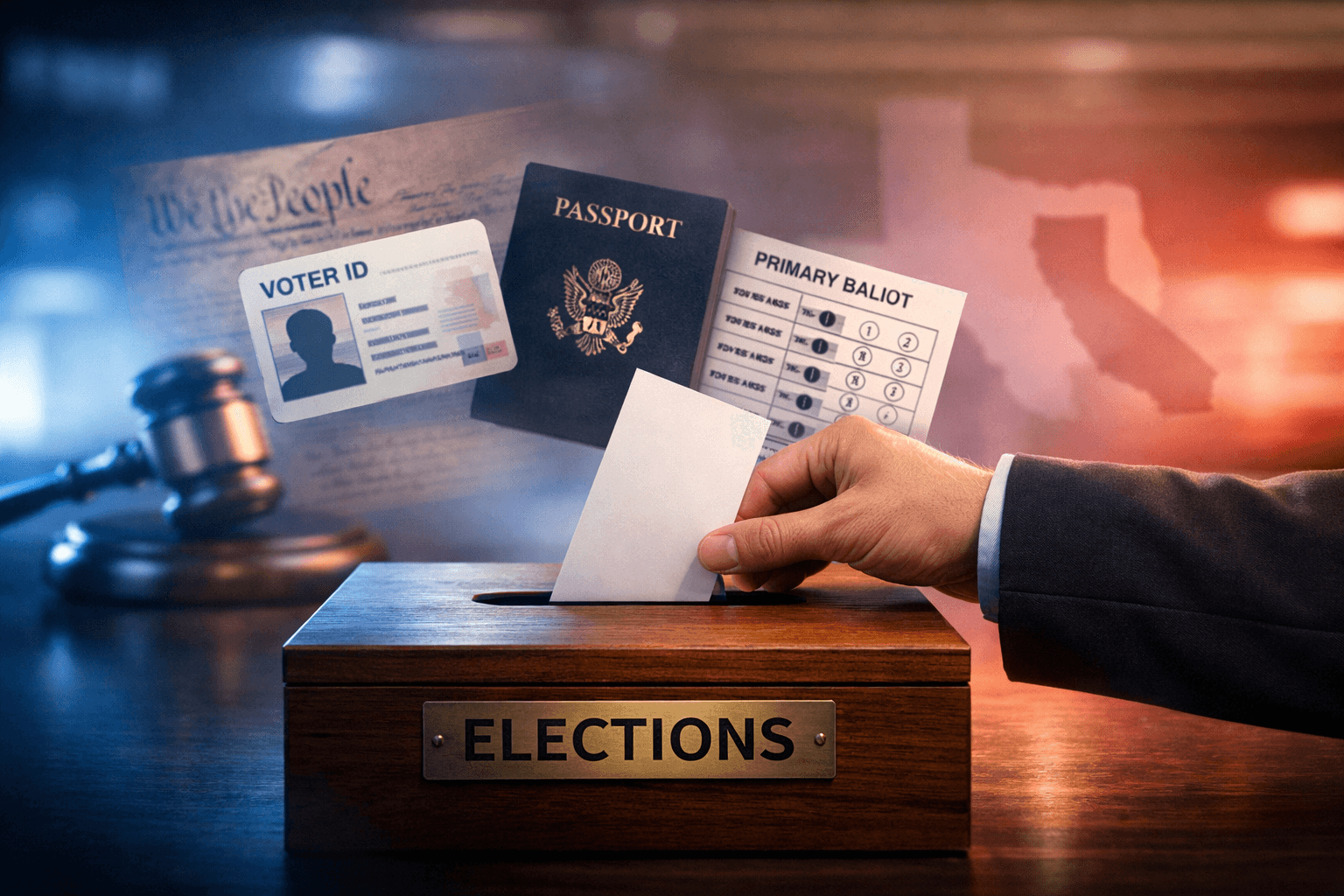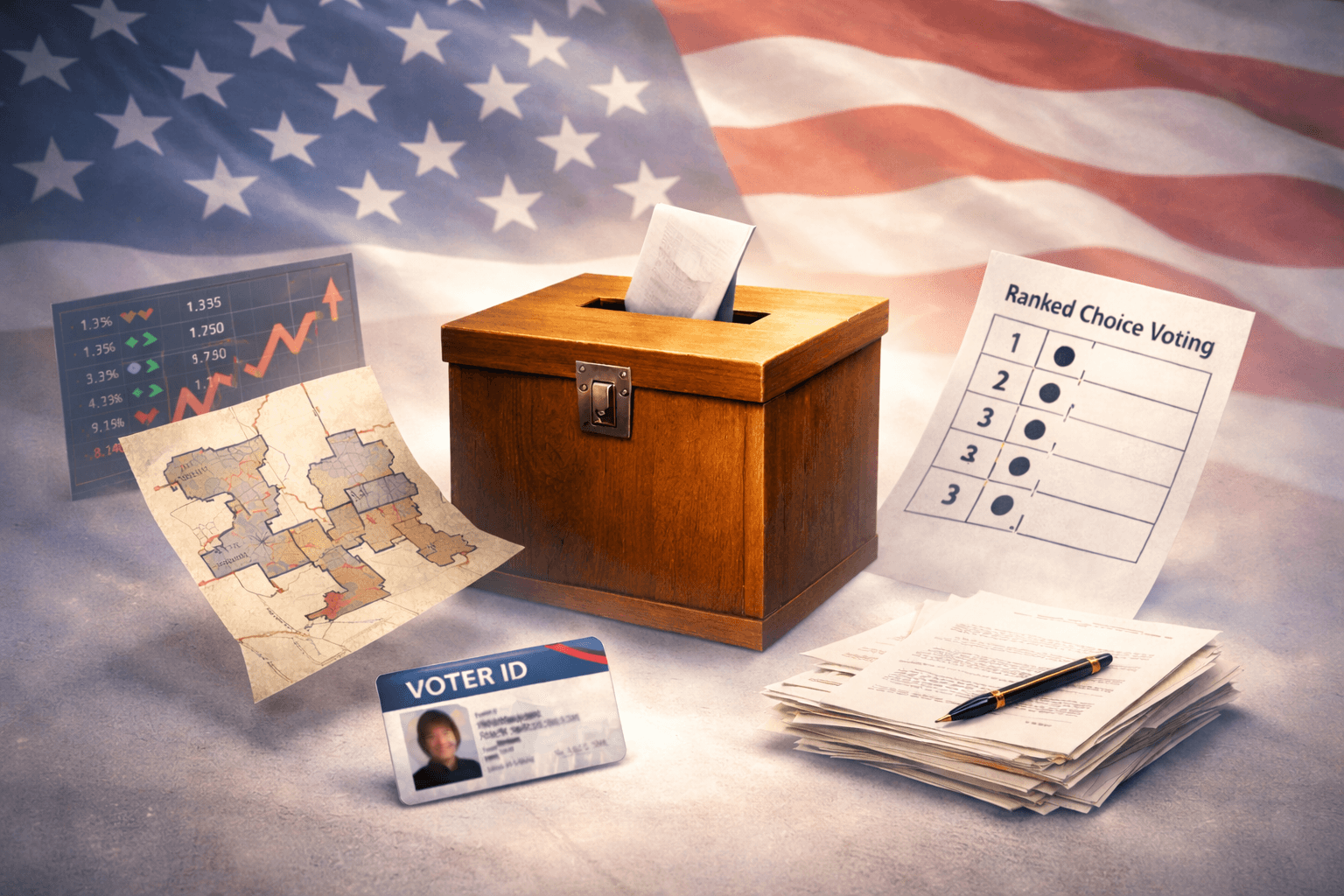Taxed But Silenced: Pennsylvania Independents Sue for Right to Vote

PHILADELPHIA, Penn. — Four independent voters, including well-known journalist Michael Smerconish and political reform advocate David Thornburgh, are suing the Commonwealth of Pennsylvania, arguing that its closed primary system violates their constitutional rights under the state’s Free and Equal Elections Clause.
They filed their lawsuit directly with the Pennsylvania Supreme Court and assert that the state’s election code, which bars voters not registered independent voters from casting a ballot in primary elections, creates a “two-tiered electorate”—one in which independents are treated like second-class citizens who have no meaningful say in who represents them.
Supporters of the lawsuit include state lawmakers who have pushed open primary reform in the legislature, including Rep. Jared Solomon of Philadelphia.
Image from a press conference on the lawsuit held on Tuesday, including (from left to right) Faegre Drinker attorney Matt Fontana, lead plaintiff Michael Smerconish, Ballot PA President David Thornburgh and Open Primaries Senior Vice President Jeremy Gruber:

“Simply put, by the time independent voters get to vote, most electoral races in Pennsylvania are already decided,” the lawsuit argues. “At best, the choice has been formally or functionally narrowed to two nominees whom independent voters never had a chance to select.”
Pennsylvania is 1 of just 9 states that completely exclude independent voters from taxpayer-funded primaries, even though 1.4 million independents in the state pay for them. Advocates for change say the practice is not only unfair and outdated, but it also makes political polarization worse by favoring candidates who appeal solely to their party’s base.
“I’m one of the 1.4 million Pennsylvanians paying for the staging of elections in which we’re not allowed to vote – that’s not right,” said Smerconish, a nationally syndicated radio and TV host known for his nonpartisan approach to politics.
Thornburgh, chairman of Ballot PA Action and son of former Governor Dick Thornburgh, echoed that sentiment. “Pennsylvania’s system of closed primaries is fundamentally unjust, and it’s making government at all levels worse,” he said. “It’s time for the Commonwealth to open our primaries and give every voter a voice.”
The lawsuit leans heavily on a previously established precedent from the Pennsylvania Supreme Court that “every voter has the same right as every other voter,” and that no law should dilute or deny the weight of any citizen’s vote.
The petitioners include individuals who have left major political parties out of principle or professional necessity, citing reputational risk and a lack of representation in the polarized two-party system. They argue that opening primaries would broaden participation, moderate extremism, and restore faith in government.
Jeremy Gruber, senior vice president of national advocacy group Open Primaries, emphasized the broader implications:
For far too long, Pennsylvania has been allowing the Democratic and Republican Parties to be the gatekeepers of the state’s primary elections, deciding who can and can’t vote in them. This case is about the voting rights of over a million duly registered voters who are being denied the franchise simply because they’re independent.”
The legal effort in Pennsylvania comes not even a full month after an Oregon activist challenged his state’s closed primary laws and joined a string of open primaries lawsuits in 2025, including the Open Primaries Education Fund’s suit in Maryland and a pending suit in Wyoming – all asserting these states are violating their own constitution.
While the legal efforts ramp up, the national framework for them has been in development for years. For example, the Independent Voter Project filed a petition with the US Supreme Court, challenging New Jersey's use of closed primaries and similarly challenged California’s use of a semi-closed primary system in presidential elections.
As the number of registered independent voters continues to grow across the US, this case could have sweeping consequences for electoral reform in Pennsylvania and beyond—especially if the state’s highest court rules that closed primaries violate the state constitution.
At stake: not just access to the ballot box—but the right to have a say in who gets on it.
 Shawn Griffiths
Shawn Griffiths





